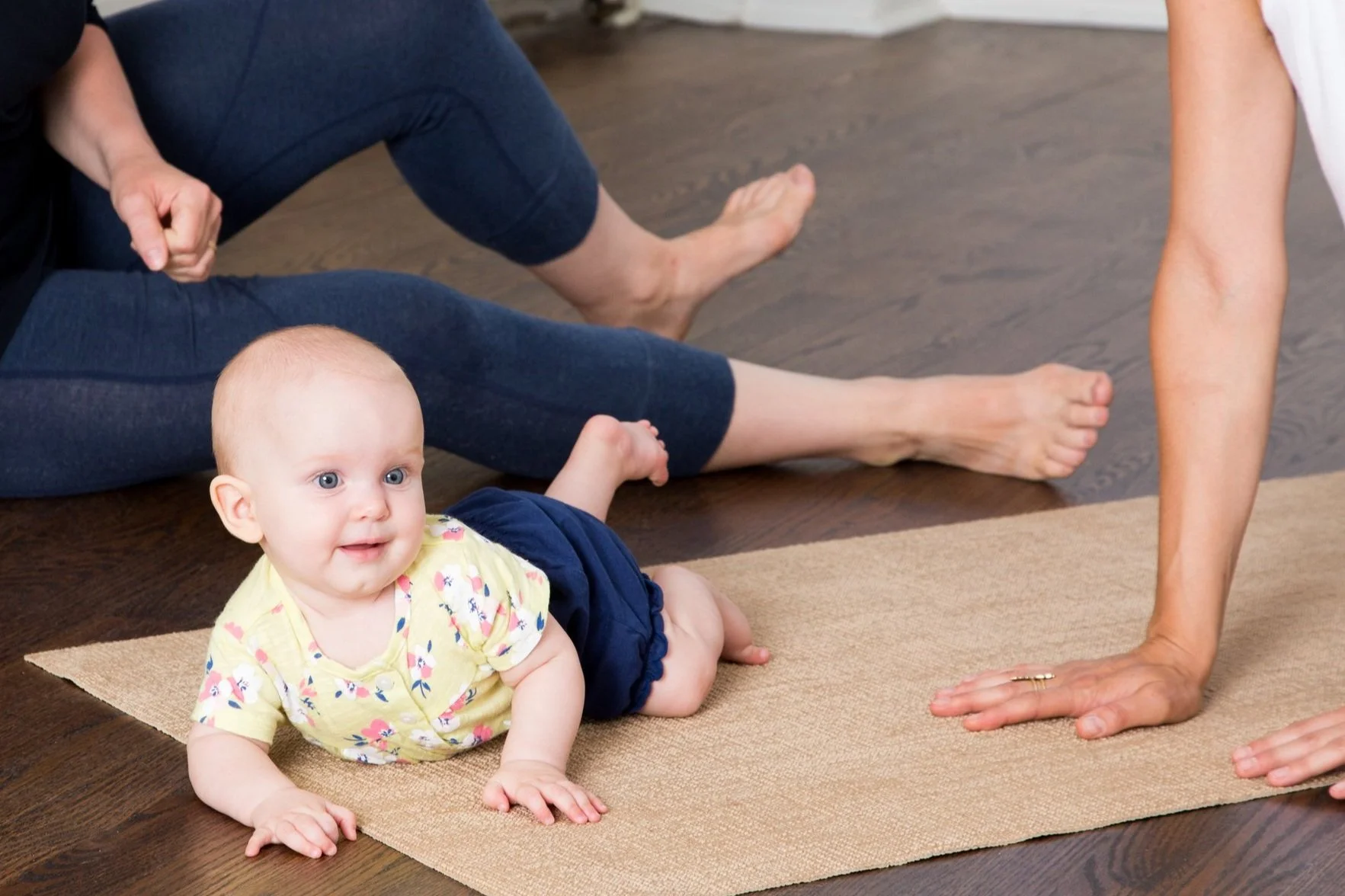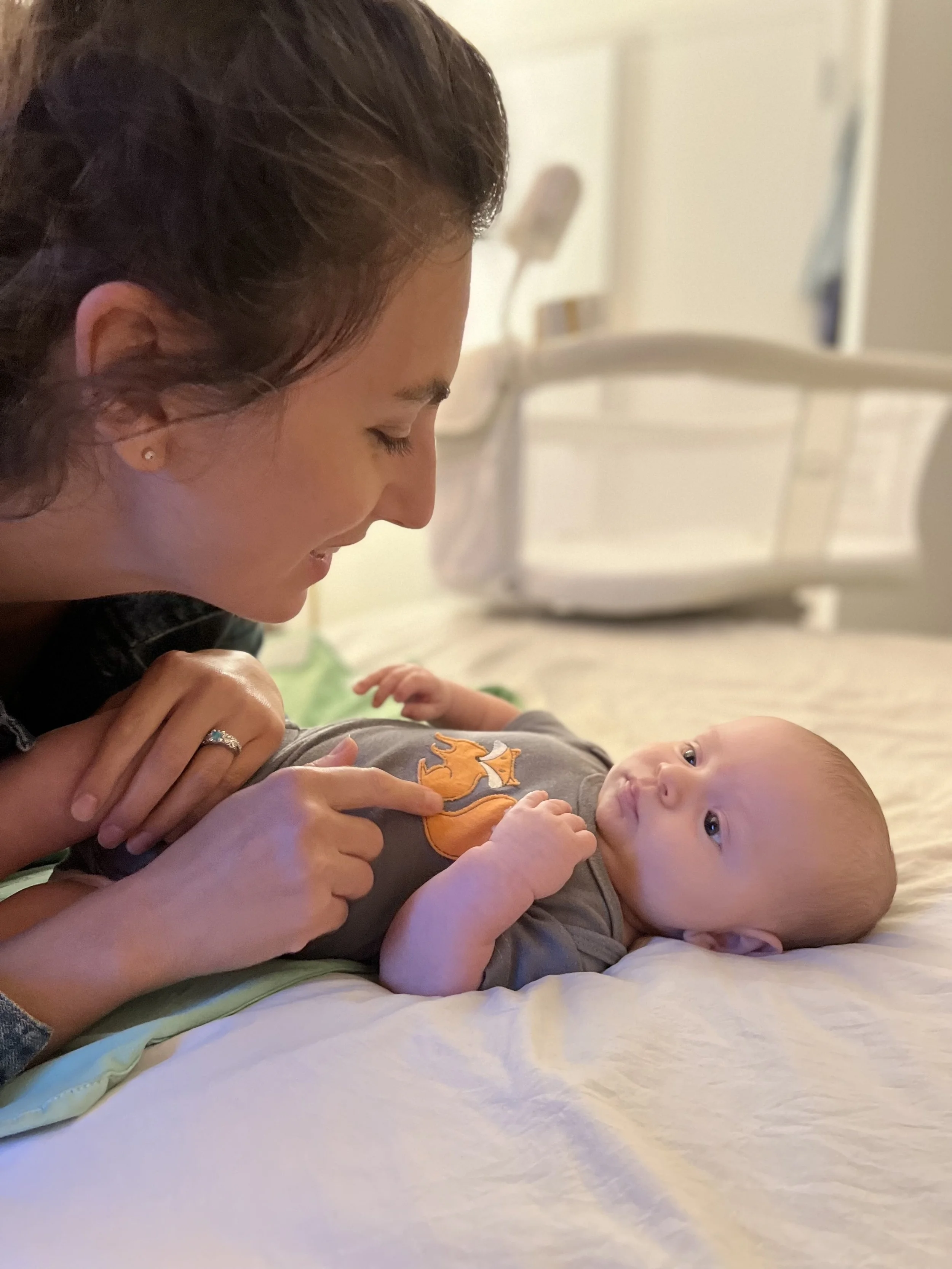A child’s first year of life is full of firsts.
These first experiences shape that child’s sense of self and their relationship to the world around them.
When we support infants’ navigation of their internal and external worlds, we simultaneously support their emotional and intellectual development.
As a baby’s immediate environment, caretakers have the power to shape a world for their baby that promotes a sense of safety and ease — an important element for a budding nervous system.
Toys Nurture Movement Potential
Get a list of IDME-approved toys along with a guide on how to choose toys based on your baby’s skill level.
INFANT DEVELOPMENTAL MOVEMENT EDUCATION (IDME)
IDME is a child-led approach to movement development that offers guidance to caregivers on how best to support their child's easeful movement in the first year+ of life.
Through observation, curated playtime and hands-on facilitation, Infant Developmental Movement Educators share ways to support your baby’s healthy developmental processes to sit, crawl, stand, walk and run - and everything in between.
IDME’s are skilled in the ways the nervous system develops in early life via primitive reflexes, basic movement patterns, and sensory input. These professionals know that your baby is working incredibly hard to integrate reflexes and find pathways of movement that are ingrained deep in their DNA.
As caregivers, we can either support or inhibit their natural rhythms through the ways we pick up, set down, carry, hold and play with our little ones.
Our habits are the environment that helps shape theirs.
IDME for Children & Caretakers
If you’re reading this, it’s clear your baby is well-loved and tended to.
IDME is a supplemental support to the loving work you do as caregivers and parents. It prioritizes the relationship between baby and caretaker above any other.
IDME is not meant to invoke judgement on parenting preferences nor to invalidate the caretaker’s instincts.
As a tool of support for both the child and caregiver, IDME offers neuroscience-based guidance to common questions parents may have around their child’s movement progression.
Questions like:
When will my baby crawl?
Why won’t my baby roll over?
How do I get my baby to spend time on their belly?
Should I pick up my baby under the arms?
How It Works
IDME playgroups provide a ‘yes’ space for children in which they can play and explore.
Specific, age-appropriate toys are on offer to encourage curiosity and help them develop new skills.
Parents and caregivers are present in the room at all times with their child. The power of being witnessed is potent even in newborns, so this precious time in playgroup can deepen bonds with your baby.
Throughout the session, IDME facilitators take time with each child and caregiver, observing how they interact in their environment and offering tips on how best to support their development toward the next landmark (ie, rolling, crawling, walking, etc.)
My Approach
As an IDME, my goal is to facilitate easeful pathways of movement for brand new humans and their caregivers.
I want to help caretakers & parents feel empowered in supporting their children’s early stages of development.
By attuning to the unique brilliance of every baby, we can create safe containers for all life to flourish.
There are four overlapping elements to each individual session or play group:
Observe
We begin each session by ‘being with’ your baby. This is a time for you to relieve yourself of the caretaking role and simply marvel at what your baby has to show you. In this way, we get to accompany your baby at the beginning of their human journey.
Play
Play is an important part of development in that it stimulates curiosity. When a child feels safe, comfortable and connected to their caretakers, their curiosity will shape how they learn, move and orient to the wider world.
Facilitate
IDME’s use non-invasive, hands-on techniques that respect your baby’s capacity for growth and self agency. The goal of this kind of facilitation is to support their internal experiences as well as their external ones.
Educate
An IDME’s work is not only for infants but for the adults who care for them. Our ways of maneuvering through the world will shape our babies’ experiences. By educating caretakers on the basic handling skills that support movement development, caretakers learn how to attune to their babies’ needs and desires.
Toys Nurture Movement Potential
Get a list of IDME-approved toys along with a guide on how to choose toys based on your baby’s skill level.







